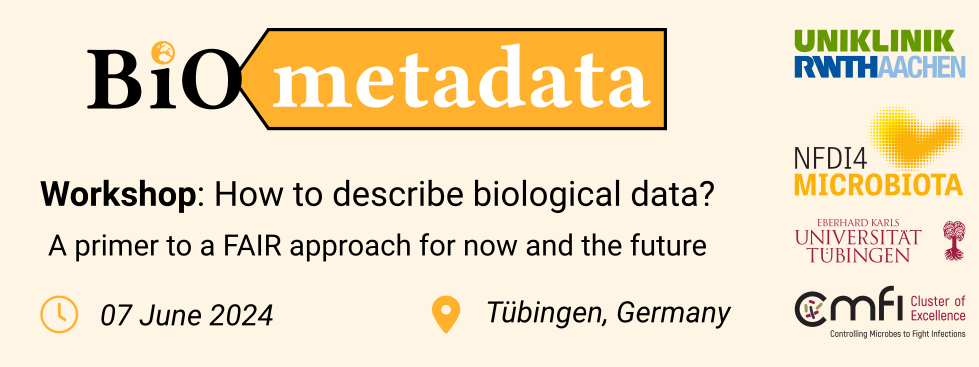
|
|
|
|
Workshop: How to describe biological data? Current good science practices require to correctly label the data produced in modern biology. Not only do these labels give context and interpretation during data analysis, but they also allow interoperability between different investigations and potential reanalyses. However, the process of describing your data thoroughly, i.e. adding correct metadata, is not straightforward and can be confusing. This workshop provides guidance on how to describe your datasets in a FAIR manner which ensures that your uploaded data is findable and re-usable by machines and humans for future data analysis and comparable results by you and others.
Save the date! Download the calendar event as ICS file Register until 1st of June 2024! Learning objectives After this workshop you will...
During this workshop, we will not..
Target audience This workshop is meant to be a beginner-friendly introduction suitable for newbies when it comes to data submission and the collection of appropriate biological metadata in microbiome research. The target audience of the workshop is:
Expenses Registration is mandatory, but there will be no participation fee. Note that there is a maximum of 20 attendees, confirmation will be given on a first come, first served basis. The following expenses will be covered by the organizers:
The following expenses will be covered by you:
We recommend arriving a day earlier if you have a long arrival day.
Educators and Organizers Educators:
Organizers:
Helpers:
The educators belong to the NFDI4Microbiota, a consortium that is part of the German NFDI (National research Data Infrastructure). One of the missions of the NFDI4Microbiota is to support the microbiology research community in making its data more FAIR via adequate tools and training. This workshop is supported by the Eberhardt Karls University of Tübingen and the Cluster of Excellence “Controlling Microbes to Fight Infections” (CMFI). |

